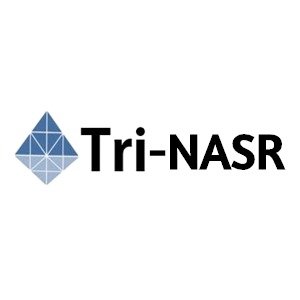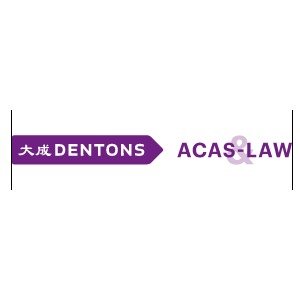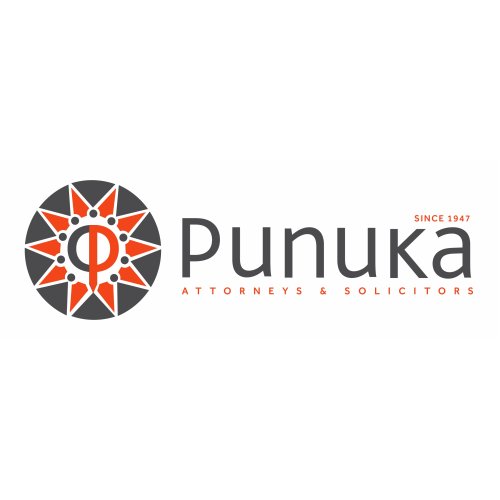Best Data Center & Digital Infrastructure Lawyers in Abuja
Share your needs with us, get contacted by law firms.
Free. Takes 2 min.
List of the best lawyers in Abuja, Nigeria
About Data Center & Digital Infrastructure Law in Abuja, Nigeria
Data Center & Digital Infrastructure Law in Abuja, Nigeria, focuses on the legal aspects surrounding the establishment, operation, and regulation of data centers and related digital facilities. As Nigeria’s federal capital, Abuja is a hub for technology investments, hosting data centers that enable cloud computing, data storage, and internet connectivity for both private firms and government institutions. Regulatory compliance, data protection, cyber security, and intellectual property laws are especially significant in this field.
Given the rapid digital transformation nationwide, understanding legal requirements for building, operating, and maintaining data centers is crucial for both local and international stakeholders. The legal landscape addresses site acquisition, licensing, compliance with technical standards, and national security considerations in line with Nigeria’s developing digital economy.
Why You May Need a Lawyer
There are several situations where legal assistance is essential when dealing with data center and digital infrastructure ventures in Abuja. Here are some common scenarios:
- If you are planning to build or invest in a data center and need guidance on regulatory permissions and compliance.
- If your business wants to ensure compliance with Nigeria Data Protection Regulations (NDPR) regarding data storage and privacy.
- If you are experiencing disputes related to data center land acquisition, leasing, or construction contracts.
- If your organization needs advice on cybersecurity laws, obligations, and incident response plans.
- If you are navigating intellectual property or licensing agreements involving digital services and infrastructure.
- If you face government inquiries or audits regarding your digital operations.
- If you are handling cross-border data transfer issues or contracts with foreign service providers.
Local Laws Overview
Data center and digital infrastructure activities in Abuja are influenced by both national and local legal requirements. Key aspects of relevant laws and regulations include:
- Licensing and Permits: Establishing a data center often requires licenses from the Nigerian Communications Commission (NCC), as well as permits from the Federal Capital Territory Administration (FCTA) for building and operations.
- Data Protection and Privacy: Operations must comply with the Nigeria Data Protection Regulation (NDPR), which sets rules for the storage, processing, and transfer of personal data.
- Cybersecurity Compliance: The Cybercrimes Act 2015 imposes requirements for cybersecurity, reporting breaches, and protecting critical information infrastructure.
- Land Use and Physical Infrastructure: Land acquisition, zoning, and utility access are regulated by local land administration bodies, requiring compliance with the Abuja Masterplan and relevant urban development laws.
- Environmental Impact: Data centers need environmental permits and must adhere to regulations by the National Environmental Standards and Regulations Enforcement Agency (NESREA).
- Taxation and Incentives: Various incentives for technology investment exist but also involve compliance with tax obligations to the Federal Inland Revenue Service (FIRS) and other authorities.
Frequently Asked Questions
What permits do I need to build a data center in Abuja?
You typically need building permits from the Federal Capital Territory Administration, utility connection approvals, environmental impact assessments, and possibly licenses from the Nigerian Communications Commission depending on your operations.
Are there data privacy laws specific to Abuja?
While there are no Abuja-specific data privacy laws, all data centers in Abuja must comply with the national Nigeria Data Protection Regulation (NDPR) and other relevant federal laws.
What are the key compliance considerations for data center operators?
Data center operators should focus on data protection, cybersecurity obligations under the Cybercrimes Act, environmental standards, building regulations, and relevant tax and licensing requirements.
Who regulates data center operations in Abuja?
The primary regulators include the Nigerian Communications Commission, Federal Capital Territory Administration, National Information Technology Development Agency, and occasionally NESREA for environmental compliance.
What legal risks do data centers face in Abuja?
Risks include noncompliance with data protection laws, failure to secure the required licenses, contractual disputes, land-related issues, and insufficient cyber security measures leading to liability for data breaches.
Can foreign companies own and operate data centers in Abuja?
Yes, foreign companies may own and operate data centers, but must comply with investment, licensing, and technology transfer regulations. Legal guidance is essential to navigate these requirements.
What should be included in contracts for data center services?
Contracts should cover scope of services, data protection obligations, limitations of liability, service level agreements, dispute resolution clauses, and compliance with Nigerian laws.
How are disputes typically resolved in the data center sector?
Disputes may be resolved through negotiation, mediation, arbitration, or litigation depending on contractual terms and the nature of the disagreement.
Do I need an environmental assessment for my data center?
Yes, an Environmental Impact Assessment is usually required to ensure compliance with environmental regulations, especially for large-scale facilities.
How do data center operators handle cross-border data transfers?
Cross-border data transfers must comply with the Nigeria Data Protection Regulation and may require data subject consent or fulfillment of specified legal conditions for international transfers.
Additional Resources
If you need more information or official guidance, consider these resources:
- Nigerian Communications Commission (NCC)
- National Information Technology Development Agency (NITDA)
- Federal Capital Territory Administration (FCTA)
- National Environmental Standards and Regulations Enforcement Agency (NESREA)
- Nigeria Data Protection Bureau (NDPB)
- Nigerian Bar Association (for legal practitioner directories)
Next Steps
If you are considering starting a data center project, investing in digital infrastructure, or facing legal or compliance questions in Abuja, the best next step is to consult with a legal professional experienced in the field. Here’s how you can proceed:
- Identify reliable law firms or legal practitioners with experience in ICT, data protection, and infrastructure law.
- Arrange an initial consultation to discuss your specific needs and potential legal risks.
- Prepare any documents or information related to your project or issue before meeting your lawyer.
- Follow your lawyer’s guidance to ensure compliance with all relevant regulations and avoid costly disputes or penalties.
Whether you are an investor, entrepreneur, or an established business, engaging the right legal expertise in Abuja is key to successful data center and digital infrastructure ventures.
Lawzana helps you find the best lawyers and law firms in Abuja through a curated and pre-screened list of qualified legal professionals. Our platform offers rankings and detailed profiles of attorneys and law firms, allowing you to compare based on practice areas, including Data Center & Digital Infrastructure, experience, and client feedback.
Each profile includes a description of the firm's areas of practice, client reviews, team members and partners, year of establishment, spoken languages, office locations, contact information, social media presence, and any published articles or resources. Most firms on our platform speak English and are experienced in both local and international legal matters.
Get a quote from top-rated law firms in Abuja, Nigeria — quickly, securely, and without unnecessary hassle.
Disclaimer:
The information provided on this page is for general informational purposes only and does not constitute legal advice. While we strive to ensure the accuracy and relevance of the content, legal information may change over time, and interpretations of the law can vary. You should always consult with a qualified legal professional for advice specific to your situation.
We disclaim all liability for actions taken or not taken based on the content of this page. If you believe any information is incorrect or outdated, please contact us, and we will review and update it where appropriate.

















